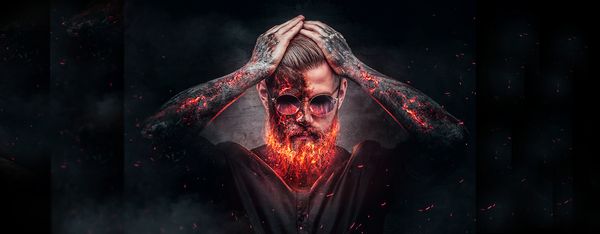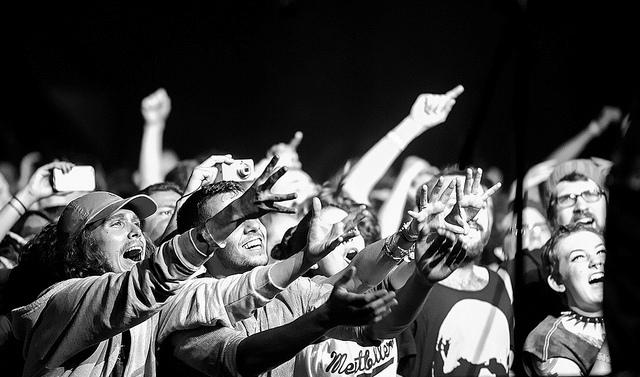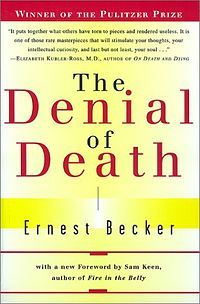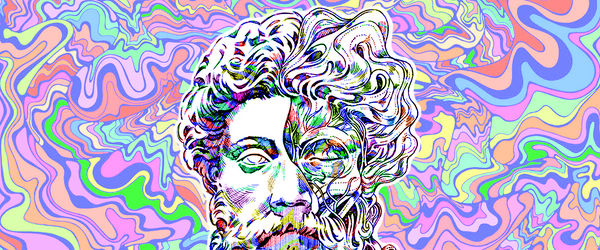Matt Karamazov • • 11 min read
Ernest Becker’s Unflinching Examination of How the Fear of Death is Secretly Controlling Your Life

Everyone knows on some level that they’re going to die, but very few people really believe it.
I’m talking about the real, emotional, visceral understanding of the fact that one day, you will cease to exist.
It means that all of your future possibilities will remain unrealized, and everything that you have come to know will come to an end. It also means that the moment of death is the last time in eternity that you will be able to feel something; to experience all there is to experience, to love everyone who’s around to be loved.
“For every individual, the whole complex business of living, this whole fascinating, agonizing, thrilling, boring, reassuring and frightening business, with all its moments of simple peace and complex turmoil, will someday, inescapably, end.”
— Ernest Becker
This is an agonizing realization, but it also comprises one of the most powerful appeals to really and truly live.
Personally, I know of no greater reason to be happy now, to attack your goals now, to learn more now, to love more now, than the idea that you will one day die.
It’s now clear that we human beings are actually the only creatures on earth who are aware of the fact that we are going to die one day, and the knowledge of this fact comes with enormous psychological consequences. It turns out that the fear of death motivates more of our behavior than we might believe.
Enter: Ernest Becker
“Man not only lives in this moment, but expands his inner self to yesterday, his curiosity to centuries ago, his fears to five billion years from now when the sun will cool, his hopes to an eternity from now.”
— Ernest Becker
“Man doesn’t know who he is, why he was born, what he is doing on the planet, what he is supposed to do, what he can expect.”
— Ernest Becker
In 1973, the cultural anthropologist Ernest Becker published one of the most influential books of the 20th century. The Denial of Death set out to explain why human beings behave the way we do, and his deep-thinking, multidisciplinary approach earned him a Pulitzer Prize in 1974.
Ironically, this fame was conferred upon him after his death two months earlier from colon cancer.
This was a man who was kicked out of almost every university he taught at, despite his students at Berkeley offering to pay his salary when the university declined to renew his contract.
Once, while illustrating a theoretical point on existential human freedom, choice, and its relation to madness, Becker used Shakespeare’s “King Lear”, while coming to class dressed as King Lear, and even using stage lighting and props.
To me, his is an example of a life well lived.
The theme of freedom ran through his entire life, from his experiences in the army while liberating a concentration camp, to his refusal to remain at San Francisco State University during the student riots in 1967. Becker didn’t believe that he could stay and teach freedom with armed police outside the lecture hall.
Now, since reading this introduction brought you even closer to the moment of your death, let’s get into some psychology…
The Denial of Death
Forming the core of Becker’s thought is the idea that the function of society is to help us believe that we can transcend death by participating in something of lasting worth.
So, in a way, societies are cultural hero-systems created to fulfill each individual’s need for cosmic specialness.
Since we’re constantly on the brink of realizing that our existence is precarious, we cling to our culture’s educational, governmental, and religious institutions to fortify our view that human life is uniquely significant and eternal.
Although there is nothing intrinsically “wrong” with this psychological defense mechanism, one of the consequences is that recognizing the validity of other belief systems means unleashing the very terror and dread that our own beliefs serve to suppress.
In turn, there is always lingering death anxiety that’s projected onto other groups of people who are designated as “evil” and must be destroyed.
We protect ourselves from our own subconscious fear of death by denigrating other cultures and their ideas, which strengthens our faith in our own. Violent conflict necessarily ensues.

What better proof of the validity of our own view of the world than for others to come around to our way of thinking?
“If a person admitted this utter lack of control, that death lurks at every breath, and let it rise to consciousness, it would drive him to fear and trembling, to the brink of madness.”
— Ernest Becker
It was clear to Becker that we build culture and personal character in order to shield ourselves from the devastating awareness of our underlying helplessness and the terror of our inevitable death.
Indeed, man’s tragic destiny is that he must desperately justify himself as an object of primary value in the universe, and this self-esteem that we’re always striving for enables each of us to believe that we are enduring, significant beings rather than material creatures destined to be obliterated.
“The great benefit of repression is that it allows us to live decisively in an overwhelmingly miraculous and incomprehensible world, a world so full of beauty, majesty, and terror that if animals perceived it all they would be paralyzed to act.”
— Ernest Becker
Literally thousands of research studies have shown that after being reminded of the fear of death, we react generously to anyone or anything that reinforces our cherished beliefs and reject anyone or anything that calls those beliefs into question.
For example, in prostitution cases, after judges were reminded of their mortality, they set an average bond of $455, compared to $50 by judges not reminded of their impending death.
Being reminded of the idea of their own death made these judges punish more harshly what they perceived as a threat to their value system.
You can see this quite clearly in other ways as you go about your day, where you’ll also notice that the cultural value of wealth, and the humiliation of not having it, is a source of anxiety for millions.
Just as we embrace our own views more strongly when confronted by the idea of our own death, we use wealth, fame, and status (among other things) as “proof” that we are not merely human animals, destined to decay and die.
Instead, these things enforce the idea, comforting though false, that we are eternal, and that we are objects of primary value in a universe of meaning.

As we’ll see, the lie we need to sustain in order to live dooms us to a life that is never really ours.
The Tragedy of Conformity
In my own life, I was fortunate enough to stumble onto these ideas relatively early. For me, books were like taking the red pill from “The Matrix”. I shook myself into wakefulness, and I live with an intensity that I never remember having before the age of 25 or so.
Fortunately, I’m not alone in this. There are many, many others who appreciate, or are beginning to appreciate the 1 in 140 trillion chance that we are here, right now, living on this gorgeous planet.
Indeed, one of my role models, the psychoanalyst Erich Fromm believed that:
“The aim of life is to live it intensely, to be fully born, to be fully awake. To emerge from the ideas of infantile grandiosity into the conviction of one’s real though limited strength; to be able to accept the paradox that every one of us is the most important thing there is in the universe – and at the same time not more important than a fly or a blade of grass. To be able to love life, and yet to accept death without terror; to tolerate uncertainty about the most important questions with which life confronts us – and yet to have faith in our thought and feeling, inasmuch as they are truly ours. To be able to be alone, and at the same time one with a loved person, with every brother on this earth, with all that is alive; to follow the voice of our conscience, the voice that calls us to ourselves, yet not to indulge in self hate when the voice of conscience was not loud enough to be heard and followed. The mentally healthy person is the person who lives by love, reason, and faith, who respects life, his own, and that of his fellow man.”
Sadly, as we take a look around, we can see that this is perhaps a minority opinion.
The last thing that man can admit to himself is that his way of life is arbitrary, and so we see all these elaborate coping mechanisms designed to shield people from their subconscious fear of death.
“Culture is composed of the mechanisms of defense of an infant afraid of being alone in the dark.”
— Ernest Becker
The “automatic cultural man” as Ernest Becker defines him is confined by culture, a slave to it, and imagines that he has an identity if he pays his insurance premiums, and that he has control over his life if he guns his sports car, or works his electric toothbrush.
This same individual is protected by the secure and limited alternatives his society offers him, and if he doesn’t look up from his path, he can live out his life with a certain dull security.
This, ultimately, makes up the tragedy of conformity.
The social hero-system into which we are born marks out paths for our heroism, paths to which we conform, to which we shape ourselves so that we can please others, become what they expect us to be.
It turns out that people are extremely comfortable in the prison of their character defenses, and resist all attempts at breaking through.
Side Note: I just got this intense tingling sensation while writing this section right now because I remembered something from the compilation, “Letters to Friends, Family, and Editors”, where the author Franz Kafka is explaining to his friend that great literature should be like “an axe to the frozen sea inside us.” Yes! That’s exactly what Ernest Becker and I are talking about!
Alright, let’s get back into it…
Further examples explored by Becker in The Denial of Death and another fantastic book of his, The Birth and Death of Meaning, include how grief over the death of our national or religious heroes shows a profound state of shock at losing one’s protection against death.
Throughout it all, he stresses that this is not a basis for cynicism. This is simply how the human animal behaves, authentically, and he says that we can find a better way forward if and when we find that this particular cultural hero-system is no longer serving us.
The urge to immortality is not a simple reflex of the death-anxiety but a reaching out by one’s whole being toward life.
We want to live, we want to matter, we want to feel important. We want to build things that outlast us, and Becker argues that we don’t have to destroy each other in order to do those things.
“The irony of man’s condition is that the deepest need is to be free of the anxiety of death and annihilation; but it is life itself which awakens it, and so we must shrink from being fully alive.”
— Ernest Becker
It seems, however, as if the human condition is just too much for an animal to take, and so we waste our lives trying in vain to escape it.
Work, even meaningless and agonizing work, is a distraction from the more ominous terror of death and people gladly submit to it, albeit unconsciously.
Some people especially identify with their possessions, family members, etc, as literal parts of themselves, and consequently exhibit dangerous levels of attachment to these things.
If you’ve ever wondered why people kill themselves after losing their money in the stock market, you can see that they do so when their money dwindles down to nothing because they are those numbers, and when the numbers go down to zero, that means that they are already dead.
Cosmic Heroism vs The Fear of Death
We live between two extremes; the desire for unity with the universe and our insatiable need for individuation and cosmic specialness.
“The moral courage to confront the silence of the universe and the anxiety of meaninglessness is a real manifestation of cosmic heroism.”
— Ernest Becker
“Come to terms with death. Thereafter, anything is possible.”
— Albert Camus
Albert Camus: “Live to the point of tears…”
One of the most striking ideas to emerge out of Becker’s body of work is that the ability to withstand anxiety is probably the only genuine heroism given to man.
We are all fragile, ephemeral creatures, barraged by a continuous stream of sensations, emotions, and events, struck by occasional waves of existential dread, until those experiences abruptly end.
But by leaning into the anxiety, becoming conscious of it, working with it, forging ahead in spite of it, we can move humanity forward, one individual life at a time.
Along with Becker, I believe that comfortable illusion is now a danger to human survival. We need to recognize our discomfort, this sense of alienation from a world we never asked to enter.
We need to recognize that although we leave no footprints in the sands of time, our lives matter in this very moment, and we can exercise our existential freedom at all times.
I also believe that our freedom comes with a responsibility to make others’ lives better. Because after all, what are we here for if not to make life a little less difficult for each other?
“We’re all just walking each other home.”
— Jalal Al-Rumi
In the end, It’s impossible to stand up to the terror of one’s condition without anxiety. To see the world as it really is can be both devastating and terrifying. Unavoidably, full humanness means full fear and trembling, at least some of the waking day.
That being said, this life is our one and only chance for happiness. At least, the only chance that we can conceive of now.
“Stuff your eyes with wonder; live as if you were going to drop dead in the next ten seconds. See the world; it’s more fantastic than any dream that’s made or paid for in factories.”
— Ray Bradbury, Fahrenheit 451

There are many distractions pulling you away from a meaningful life; many people who will intentionally or unintentionally divert you from the path of living a conscious life. But now that you are a little more aware of the unconscious drives directing your behavior, and how the subconscious fear of death impacts your waking life, you can exercise that existential freedom which you’ve always had.
The Last Word
I’ll give the last word to Ernest Becker, one of the most existentially courageous human beings who ever lived:
“Who knows what form the forward momentum of life will take in the time ahead or what use it will make of our anguished searching?”
— Ernest Becker
“The only way that man could securely know that he was a hero would be if he really knew what was going on in evolution on this planet and in the cosmos. If he knew for sure how things were supposed to come out and where his part fit into the outcome, then he could relax and accept death because his life would be lived in the Truth of Creation. But this is precisely what he cannot know, can never know. And so the bitter defensiveness of his fictions, the desperation of his pretence of certainty that his cultural hero-system is the true one.”
— Ernest Becker
All the best,
Matt Karamazov
If you’re prepared to confront and overcome your deepest fears…
Take our acclaimed course, 30 Challenges to Enlightenment.
Further Study:
The Denial of Death by Ernest Becker

This book earned Ernest Becker a posthumous Pulitzer prize in 1974 and it represents Becker’s brilliant and impassioned answer to the “why” of human existence. It simply contains more explanatory power per page with respect to the biggest questions of our lives than almost anything else you could spend your time reading.




![Seneca’s Groundless Fears: 11 Stoic Principles for Overcoming Panic [Video]](/content/images/size/w600/wp-content/uploads/2020/04/seneca.png)







